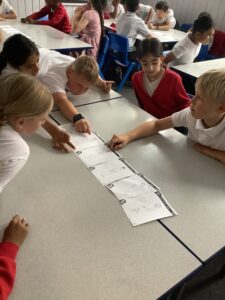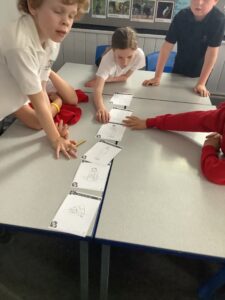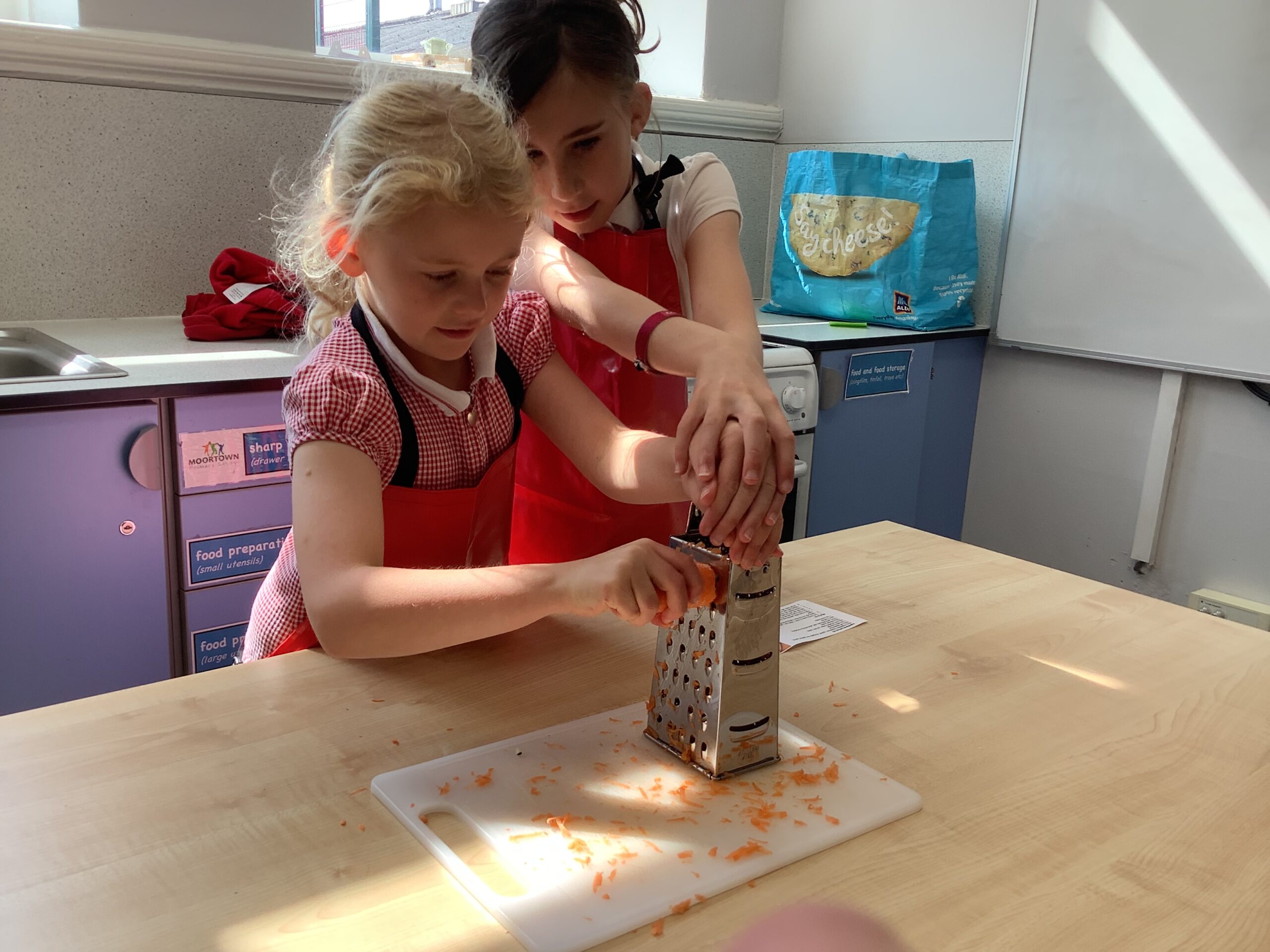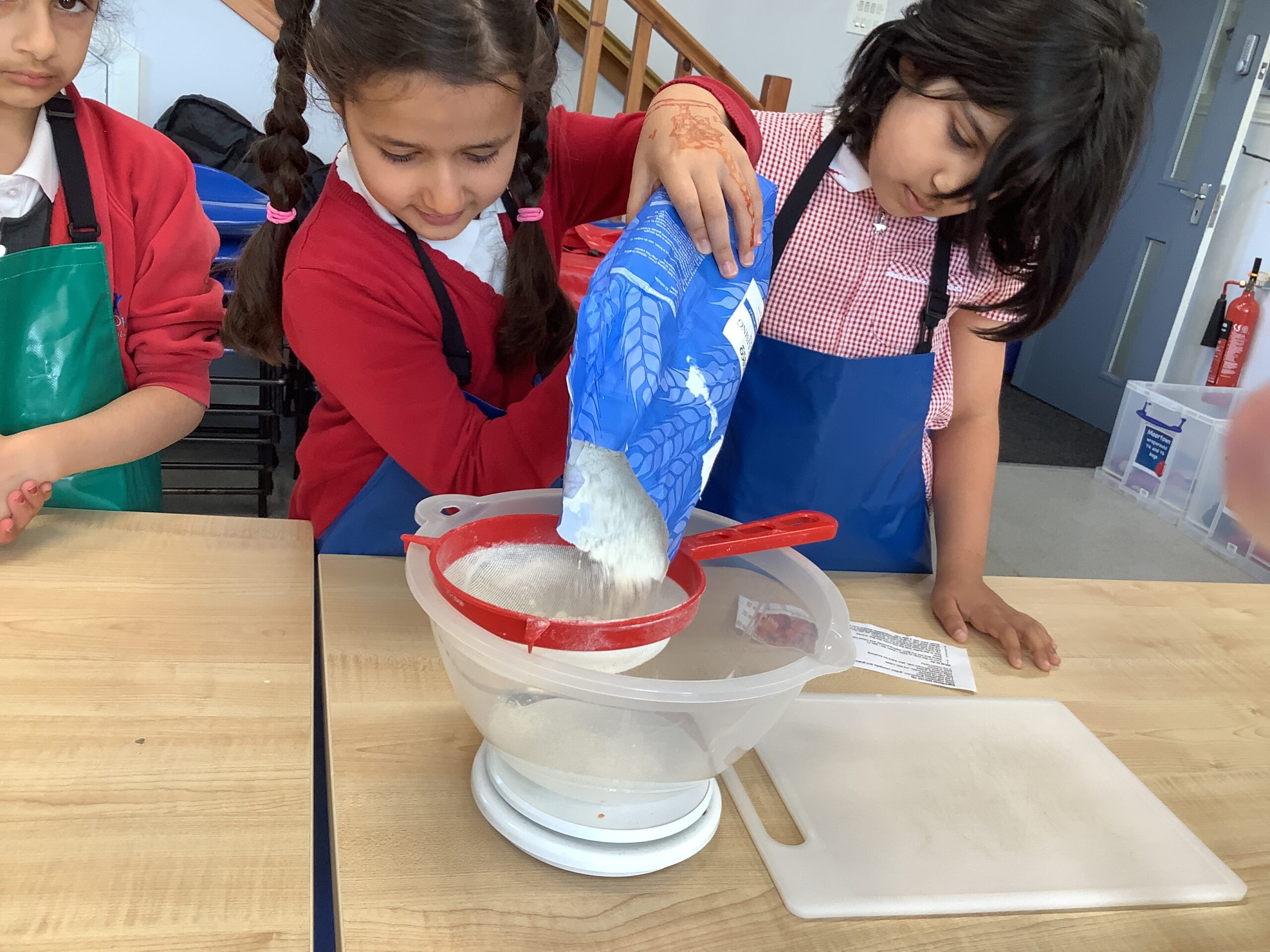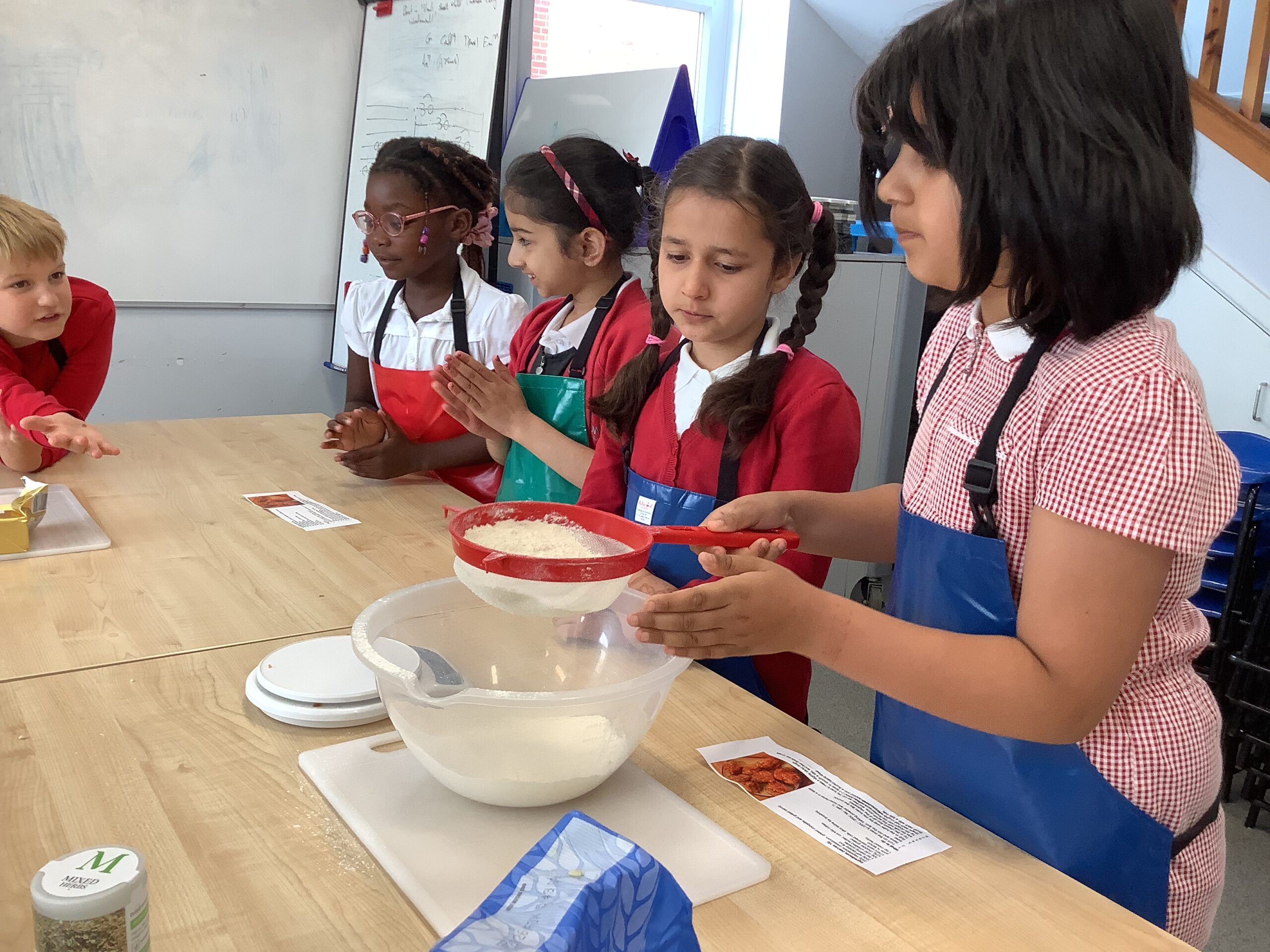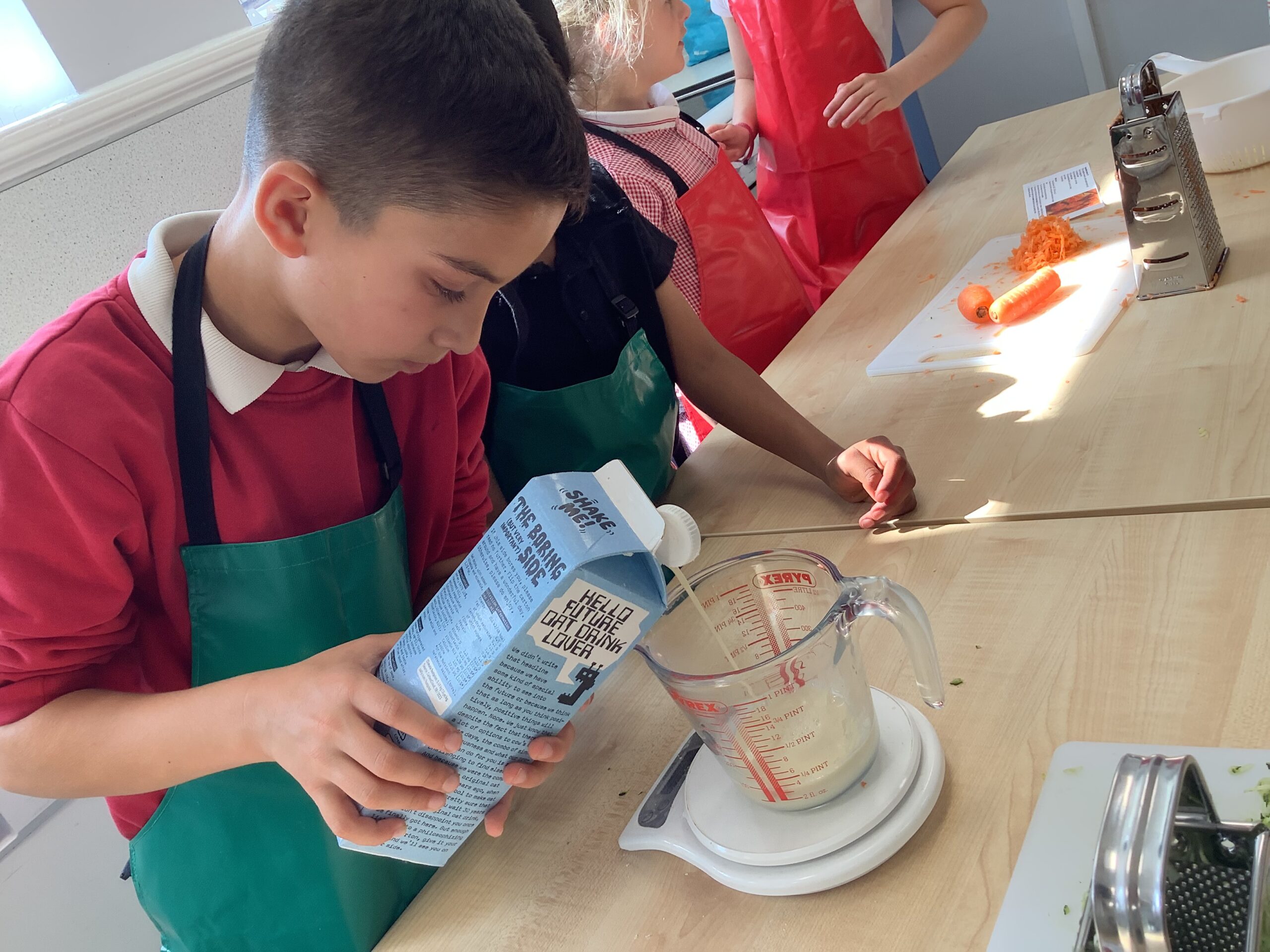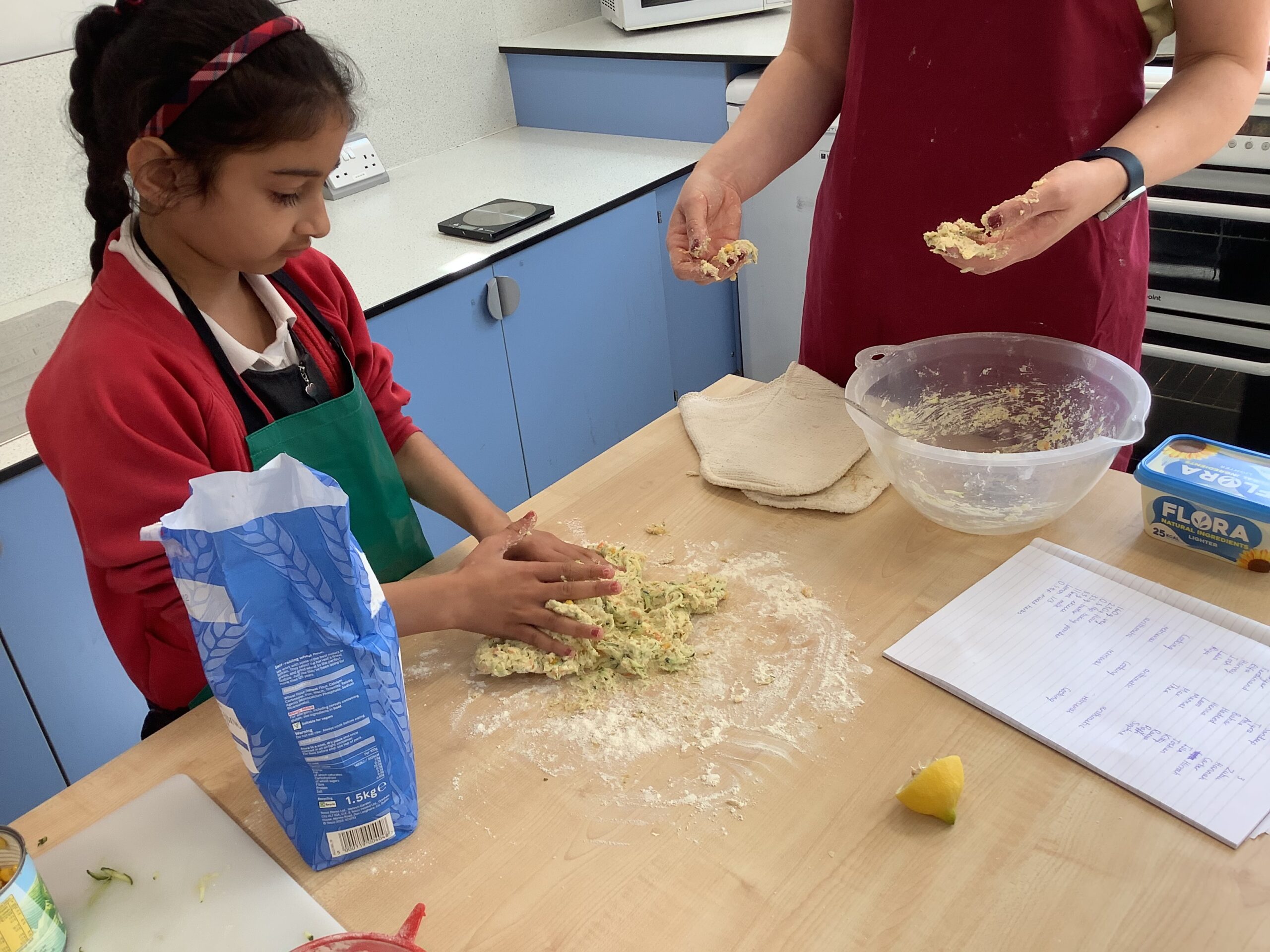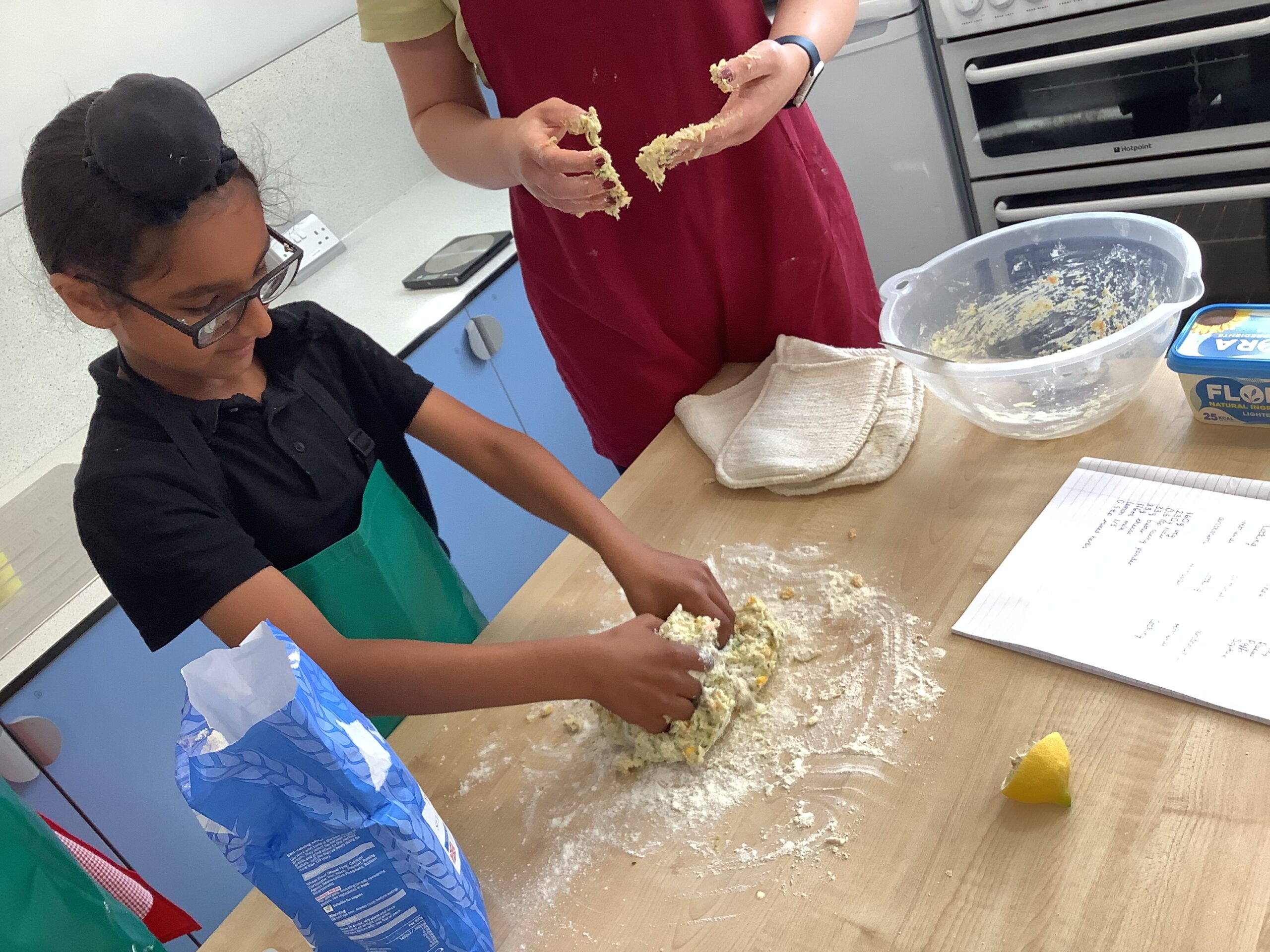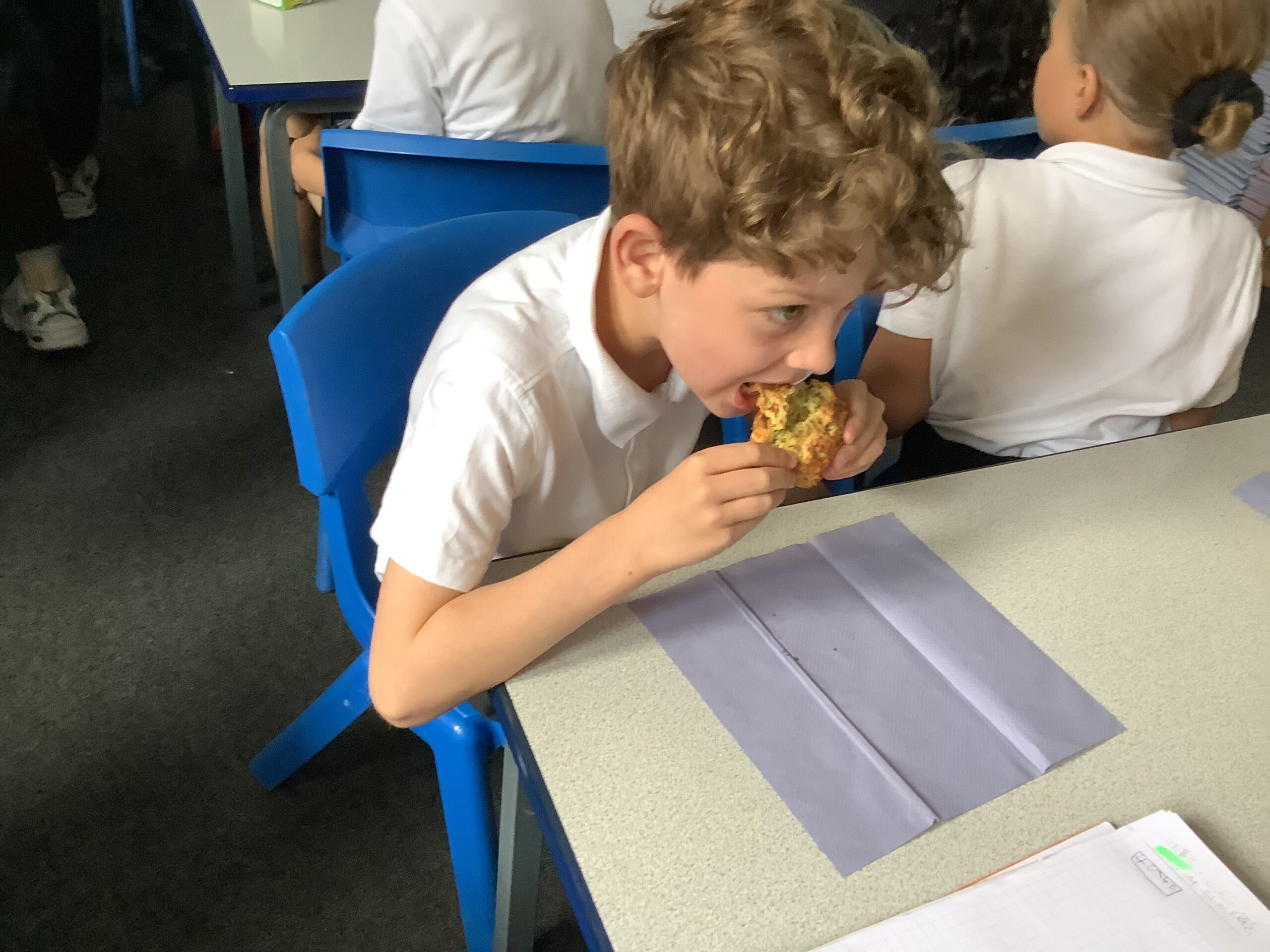Design and Technology: TechCard
During our Design and Technology lesson last week, the children were set a task to build a bridge.
The design criteria (what makes a product successful) for their bridge were:
- It has to be strong.
- It has to be able to hold a vehicle.
- It has to be long enough to stretch from one desk to another.
The children used TechCard for this! TechCard is a building system that uses simple card components to create working models.
I gave simple instructions and let them be as creative as they liked. I saw fantastic teamwork skills. They brought their own ideas together and every group built a successful bridge!
Here’s some images of us testing each bridge. The most successful ones had more than one layer of TechCard to make it strong and secure.
Help at home: What would children’s climbing frame need to be a successful one?
Can you list at least 3 design criteria?
1.______________________
2. ______________________
3. ______________________
Living and Learning: RSE
Over the last few weeks in Year 4, we’ve been exploring relationships and change.
We’ve discussed that our relationships should always be happy and healthy. We gave ideas for how we can make sure this is the case:
- We always respect each other.
- We are kind to each other.
- We try to help each other.
- We listen to each other.
If we don’t feel like our relationships are happy and healthy we should always speak to a trusted adult.
We then looked at the human life cycle and spoke about some of the changes that happen as we get older. For example, when we are born, we have no responsibilities and our grown ups look after us constantly. As we grow older, we have more responsibilities like cooking for yourself, having a job and learning to drive.
Help at home: by discussing a change that is coming up soon. How do you feeling about moving up to Year 5?
Inter-Primary Sports Day
Some children from Y5 and Y6 went to a sports day at Allerton Grange. There were lots of other schools there competing in a range of events such as javelin, long jump and 200m.
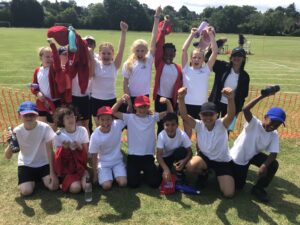
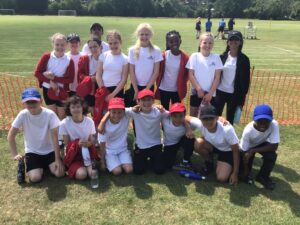
Everyone represented Moortown with commitment, enthusiasm and (most importantly) respect. We finished fifth overall!
Well done to all who took part.
DT – testing the strength of different designs
This week in DT we have done lots of testing the stability and strength of different shapes. First of all we made three shapes out of playdough. We tested which was the most stable. We found out that the pyramid was the most stable because it had a wide, flat base.
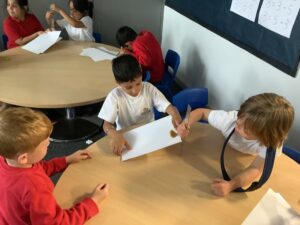
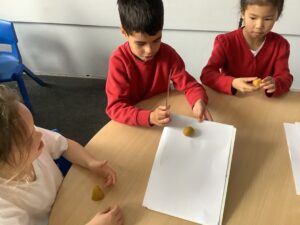
Then we tested the strength of different shapes made out of paper. We made a cylinder, cuboid and triangular prism and placed books on top. We were quite surprised to find that the cylinder held the most books before collapsing.
Later on in the week, we investigated how we could strength our designs. We each made a cylinder on our tables and put them together to make a super structure – some peoples held 24 books with just 6 cylinders!
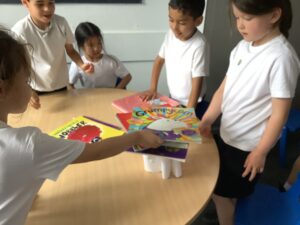
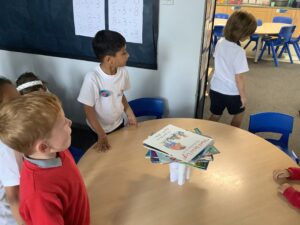
Finally, we put all our cylinders together to made a mega structure! We were able to put 107 books on it and it still didn’t collapse. We had run out of books! So we decided to see if it could hold the weight of a child which it did! It couldn’t hold the weight of Mr McGriffiths though!
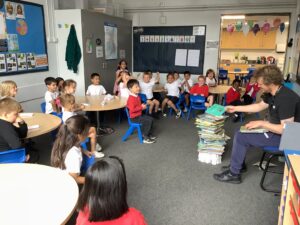
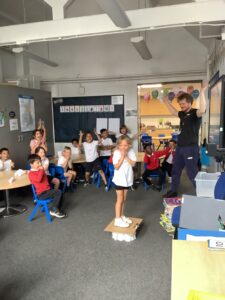
Help at home by making and designing different structures. How could you test their strength!
Group reading
Hello!
This week, we’ve begun our final group reading of the year!
The class have been divided into groups and each group has been given a book to read at home. This will last for this final half term.
During our Book Club sessions each Friday, each group will discuss what they’ve read so far and share their reading record activities related to their book. This will be a fantastic opportunity for the children to explore characters and storylines more than they might do normally!
Every Friday during Book Club, each group will be given a new page to read to for the following Friday.
This week’s pages:
- The Adventure Club: The Orphan Orangutan – page 22
- The 13-Storey Treehouse – page 32
- The Accidental Rock Star – page 20
- Chitty Chitty Bang Bang and the Race Against Time – page 20
- The Lion, the Witch and the Wardrobe – page 30
- Adventures of the Wishing-Chair – page 15
What to remember:
- Your child has a book that they need to read every week (up to a chosen point marked with a post-it note).
- Their reading record activity needs to be completed using their new book.
- A comment and signature from a grown up needs to be written in their reading record.
- Group reading books and reading records need to be brought in every Friday.
Help at home: listen to your child read their new book and ask them questions about the book to help prepare them for Book Club discussions.
Orienteering
Recently, as part of the Leeds Well Schools Partnership, some of our Key Stage 2 children participated in an orienteering event at Roundhay Park.
After being briefed on the rules and how to complete the orienteering challenge, they set off with their partner armed with a map of the site to find the first check point. Then, it was back to the start to hand over to the other pair in their team for them to find check point two and so on until all twelve markers had been found.
The children worked brilliantly in their teams encouraging and supporting each other.
Well done to all the children for representing the school so well and developing these great skills.
The event was led by Airienteers and they have permanent orienteering courses across Leeds locations. Here’s the course for Roundhay Park.
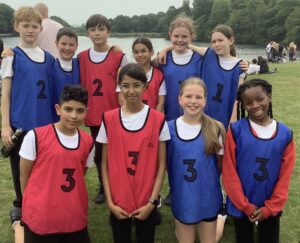
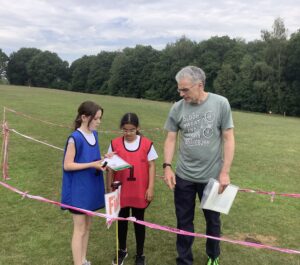
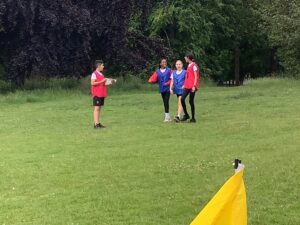
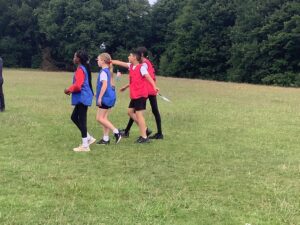
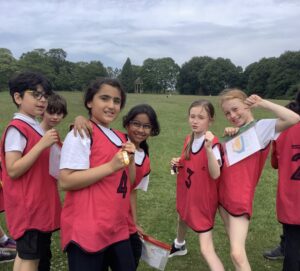
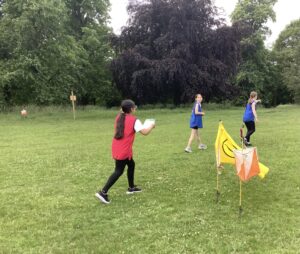
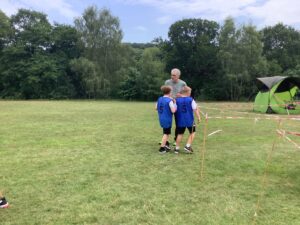
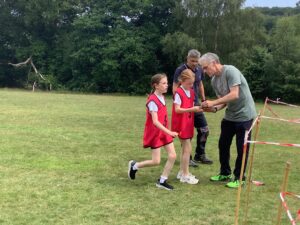
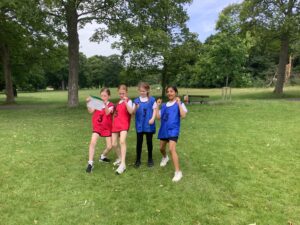
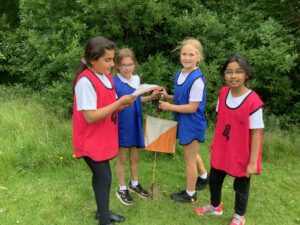
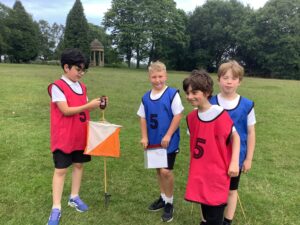
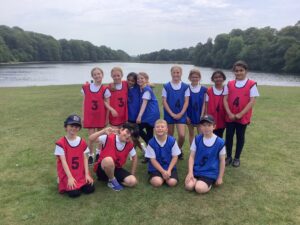
Summer 2: Week 2
Literacy
This week we read lots of seaside poems collected by Jill Bennett. We used the illustrations in the book to help us think about things we might only see at the seaside. We compared two different environments (city and seaside) by looking are various pictures.
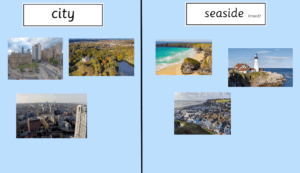
Maypole
The Maypole practising has started! For many years, the Reception class have opened the Summer Fair by performing a Maypole dance. We’re super excited to show off our amazing skipping skills on Friday 04 July.
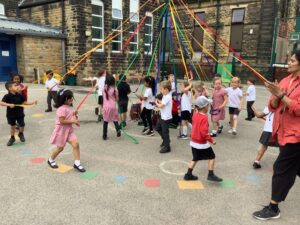
Maths
We’ve been deepening our understanding of mathematical relationships within numbers to 10. We’ve enjoyed using different resources to help demonstrate these key skills:
- assembling a whole object from different parts
- making a whole number from 2 parts
- splitting some numbers into 2 groups that each have an equal amount
- recognising that 2 equal groups can make a double, e.g. double 3 is 6 altogether
- understanding that double patterns are even; they have ‘flat tops’ because they are made of 2 equal groups
- understanding that odd numbers cannot be split into 2 equal groups; they’re not doubles, they have an ‘odd block’/’odd one out’
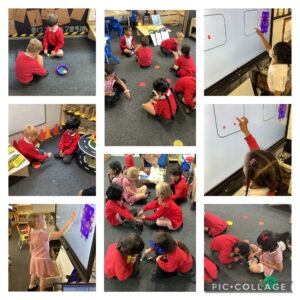
Zog Day
Yesterday, we watched Julia Donaldson read Zog and Zog and the Flying Doctors. We also got to watch how to draw a loveable dragon by Axel Scheffler. We got our orange pens ready and had a go at drawing our own Zogs!
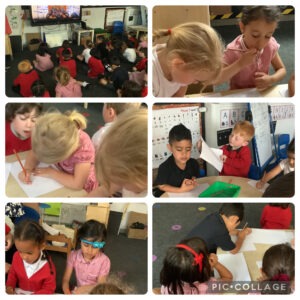 Poetry Picnic
Poetry Picnic
This week’s poem is called Thunderstorm. We had lots of fun using prosody when reciting this poem.
Reminders
- Reception to Year 1 Zoom meeting on Monday at 6pm
- Class photo day on Thursday
Production: We’ll Meet Again!
Hi everybody!
Please make sure you bring your costumes and props outlined – in today’s letter – to school no later than Friday 20th June, in a named plastic bag. If you don’t have any of the items listed for your role, please let an adult in Year 5 or Year 6 know before this Friday.
Keep practising your lines at home and get into the character you are portraying!
Thanks everyone!
Food Technology: savoury scones!
Today, Year 3 completed their final Food Technology session. This time, they made savoury scones! Some of us had never eaten a savoury scone before, let alone made them.
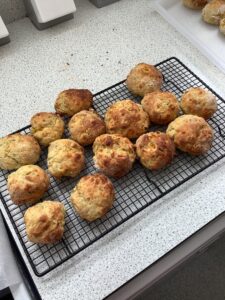
They had courgettes, carrot and sweetcorn in to make them filling and a part of our balanced diets.
We worked in groups of 10 to make a batch of scones so we all had to share the jobs. The two main skills we learned and practised were grating and kneading.
Grating the vegetables was tricky as we needed to keep the slippery grater up-right! The courgette was the most difficult.
Kneading our dough was interesting as the dough was quite sticky. We needed to make sure our surface and hands had enough flour on to stop it from sticking everywhere.
Overall, we did a fantastic job and ALL of the children loved the flavour!
Help at home by using the recipe to remake the savoury scones using different vegetables! They’ve been sent home today. The children thought that pepper and tomatoes could be tasty…
Science and Media Museum
Year 5 went to the National Science and Media Museum. Whilst we were there, we got to see lots of AMAZING things. We watched a science show that had experiments that the children could join in with – I even had a water balloon popped over my head! We learnt how ‘elephant’s toothpaste’ was created (not actual elephant toothpaste – just the name of the experiment) and create flames of different colours.
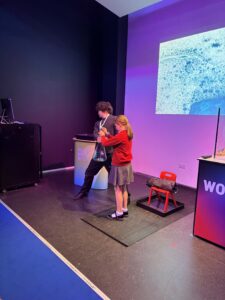
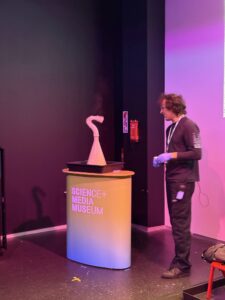
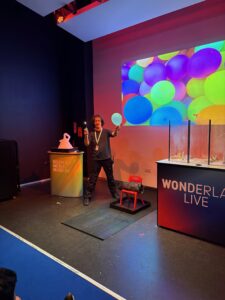
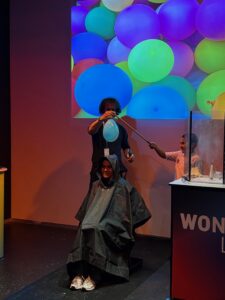

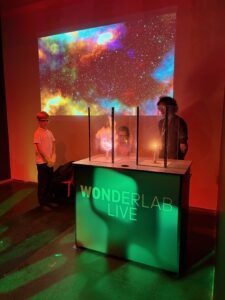
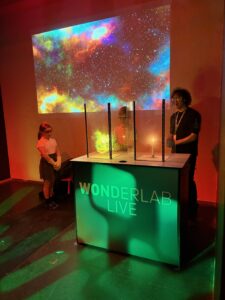
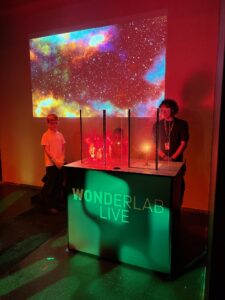
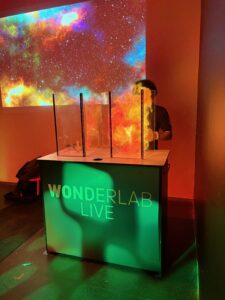
We then got to visit the ‘You:Matter’ exhibition where the children were able to immerse themselves in a digital experience that revealed how we are all connected to nature and the universe.
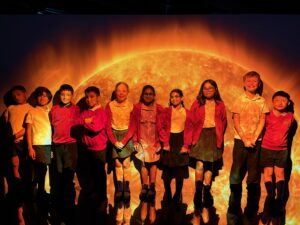
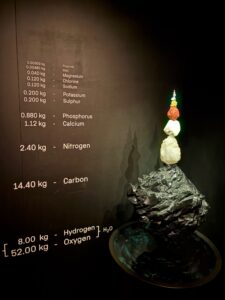
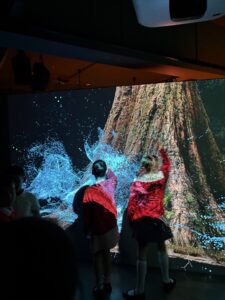
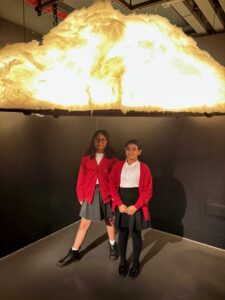
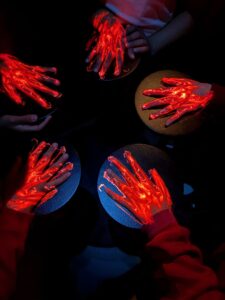

To finish off the day we went into their ‘Wonderlab’. Year 5 were able to experiment with light and sound to understand the technology they use everyday.
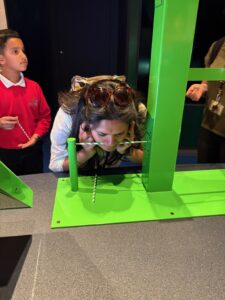
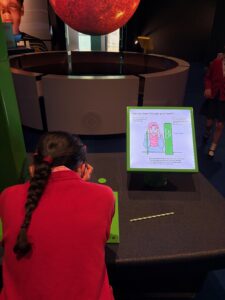

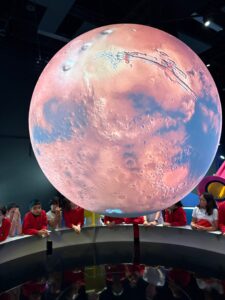
The children really enjoyed going on this trip and wanted to share some of their favourite parts:
Aaron: The experiment with the flames because it was cool when the colours changed.
Rory: I liked the show because a) the elephant toothpaste experiment was cool; b) Miss Goswami got wet; and c) the flames changing colour were interesting. The talk about the planets was fascinating!
Ibby: The part where we could put our face onto the screens to see how we are made of atoms.
Erica: I enjoyed being picked to help with the fire experiment.
Rody: I liked the mirror maze because it was fun!
Nate: I liked the whole of the ‘Wonderlab’ because you could interact with lots of different experiments.
Nimrah: I enjoyed the part where you could put your hand into optical illusion with water.
Help at home: Have a discussion about what your child’s favourite part of the day was. What was one thing they learnt from the science talk? What was the best experiment in the live show?

